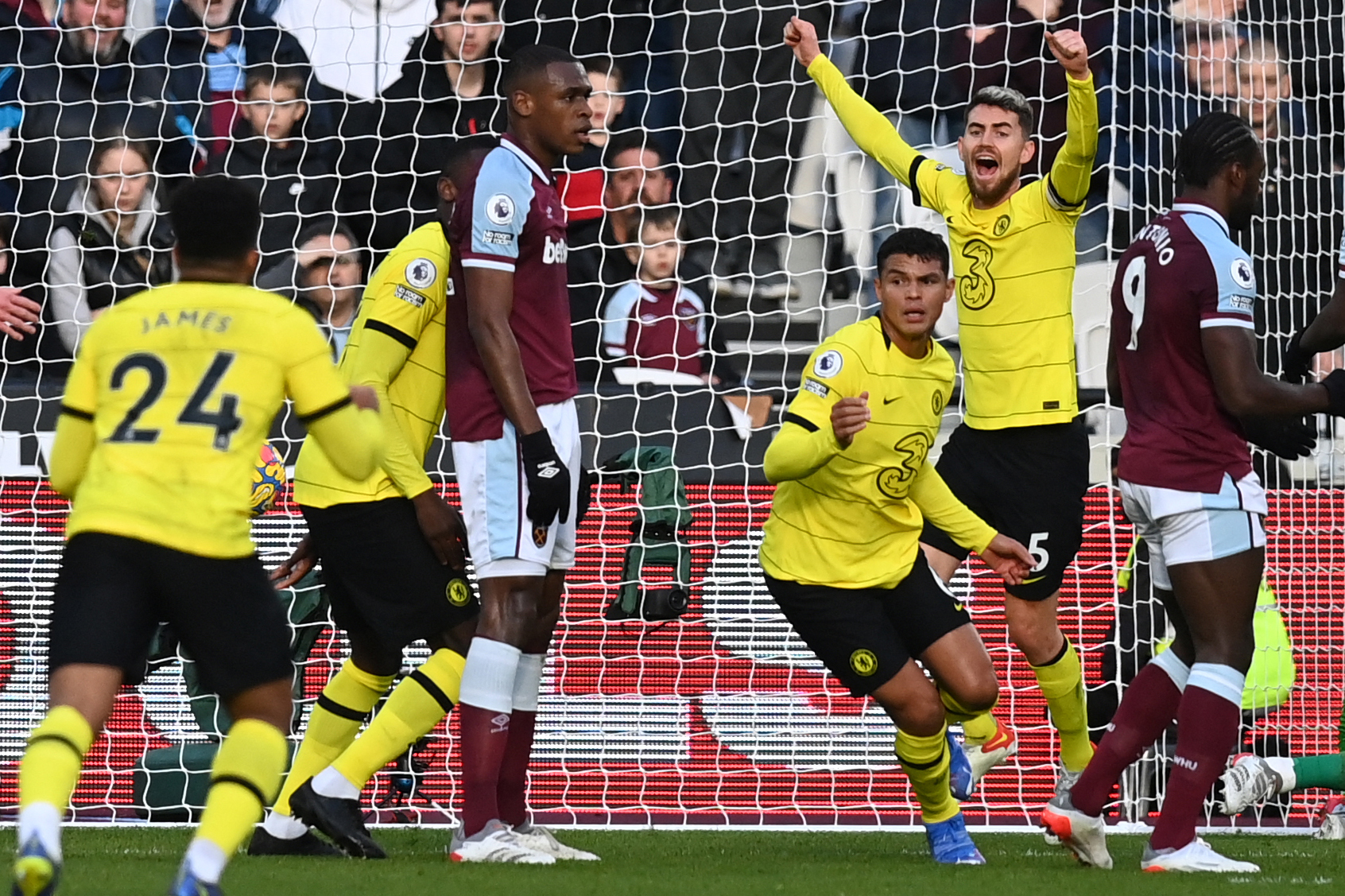Brian Clough once said it only takes a second to score a goal. True. But even Cloughie might have been rendered speechless by the way that Thiago Silva scored one and saved one inside 30 seconds of playing time last weekend.
Silva is one of those Brazilians who seem to defy age. They are drawn to the European money pot in their youth and their native ability enables them to play on and on in the most competitive leagues on earth, often long after their contemporaries are burned out.
Silva, 37, is on a season-to-season contract at Chelsea after spending eight seasons with Paris St-Germain, and before that, three at AC Milan. He started with nothing, he plays for millions, and he still captains his country after 102 caps, and eight Olympic Games appearances.
But we are accustomed to that kind of longevity. Brazil exports footballers to 102 countries – 39 of them in Europe. The talent follows the money, of course. But it has to be the love of playing that makes Silva get up in the morning and go to work with Chelsea. It is that love, that addiction, compelling Dani Alves to fly back from the briefest of “retirements” and offer himself at 38, going on 39, to his troubled former club FC Barcelona in the New Year.
And it was definitely a compulsion for Cafu. Born in a favela, a shanty, in São Paulo and playing against men by the age of seven, Cafu was rejected by all of the big Paulista clubs until he met his mentor Telê Santana, one of the most creative coaches in Brazilian history.
Santana went on to coach Brazil’s national team. And Cafu, adored in Milan as “The Express Train” that kept on running, was not finished as a wing-back and a Brazilian national team asset until he retired on 142 caps.
Breathtaking longevity. Not just from the magicians from Pelé to Neymar who thrill us with their instinctive attacking play, but from these players who convert defence into attack and who seem to expand their active lifespan beyond the norm. As defenders, they take the hard knocks. As competitive animals, their endurance is just so remarkable.
Over the past two decades, virtually all Brazilians have headed to Europe. Because the demands have increased at home and abroad in the past two decades, these eight men have eclipsed the 92 times that Pelé was able to represent Brazil:
Cafu 142 caps; Roberto Carlos 125; Dani Alves 119; Neymar 116; Lucio 105; Thiago Silva 102; Claudio Taffarel 101; Robinho 100.
Taffarel played in goal, Neymar and, before him, Robinho were born to be the greatest gifts since Pelé, although neither will turn talent into three winning World Cups as he did.
But Brazil also always had athletic, durable defenders, from Carlos Alberto, the captain of the fabulous 1970s side, to Cafu, Dani, Lucio and Thiago Silva. And that brings us back to what the Chelsea man did at London’s Olympic Stadium last Saturday.
When he rose above his 1.81m (5ft 11in) height to head the first goal against West Ham it was nothing we had not seen from him before. But after almost two minutes of time lost on celebration and the restart we saw the other side of Silva.
Chelsea’s goalkeeper Édouard Mendy was on the floor, completely beaten, when Silva made a goal-line interception. On my stopwatch that was 24 seconds after the restart. And it was typical of Thiago Silva’s reading of the game, sensing of danger, and calm, selfless professionalism in the line of duty.
Quite surprisingly, PSG, with a Brazilian sporting director Leonardo, had let Silva go, almost a retirement gesture, in the summer of 2020. Their defence without him is built around a younger Brazilian model, centre-back Marquinhos. But to my eyes, two Brazilians in the back four were infinitely more secure than the current partnership of Marquinhos and the muscular, erratic Presnel Kimpembe.
Age must have been the main factor in letting Thiago Silva, a leader and a still outstanding performer, go for nothing but his £5.46m salary. Chelsea are stretched, like all successful clubs, through playing too many games, but Silva has been outstanding in eight consecutive appearances.
His goal in East London, at age 37 years and 73 days, eclipses Didier Drogba as the oldest Chelsea scorer, in 2015. Much more important is the consistent example he sets in seemingly casually converting rearguard safety into counterattack through the ability to see and to stroke a forward pass.
The best of his kind in Brazil, the best in the Italian, French and, arguably now, English football is some testimony. Yet, like Cafu, Silva struggled to break out from Brazil’s teeming kindergarten. He was rejected until, again, one coach (Ivo Wortmann) spotted his potential.
Even then extraordinary hardship followed because at 19 Silva contracted tuberculosis in Moscow after he joined Dynamo. A doctor said that if he had delayed going to hospital by another two weeks, Silva would have died.
He returned to Brazil after six months amid reports suggesting he had lost the will to play. But for all those who love a fighter and a truly talented player, he returned to earn comparisons in Italy to the imperious Franco Baresi, in France to Lilian Thuram.
In England, aptly bearing in mind that his most recent opponent was West Ham, he has been compared to the great Bobby Moore. Men who made defending an art.
Welcome to the golden winter of Thiago Silva
The Brazilian player defies age. He started with nothing and now plays for millions, still captaining his country 102 captaincies later.




